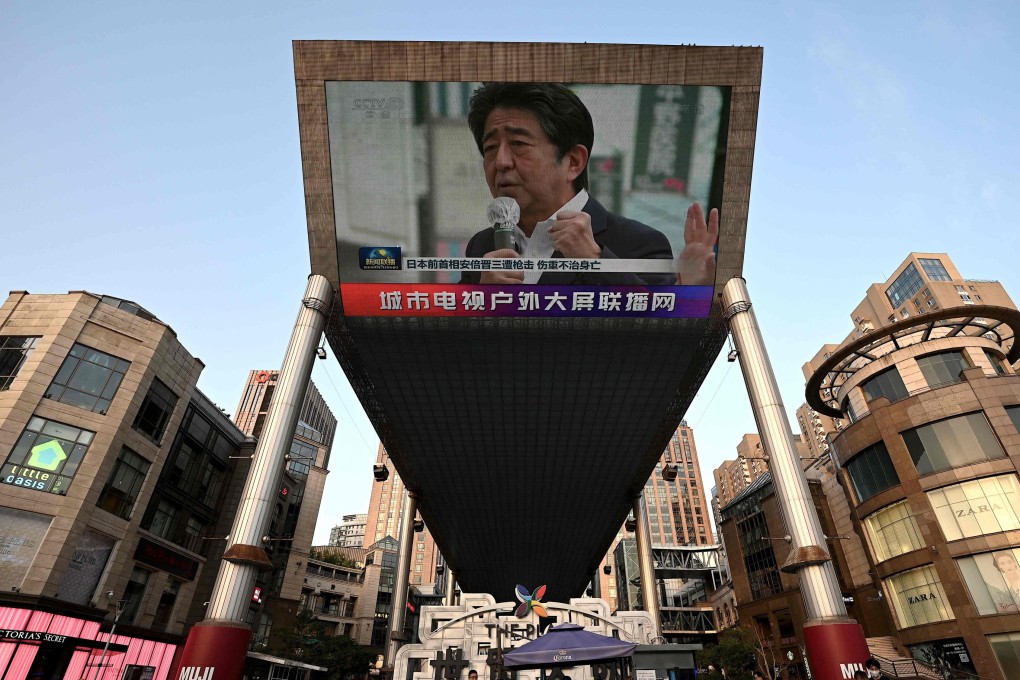Advertisement
As I see it | Will Chinese netizens’ jubilation after human tragedies like Shinzo Abe’s assassination fuel foreign ill will?
- Many Chinese netizens expressed their delight online following the assassination of Japanese Prime Minister Shinzo Abe
- The global community has long drawn a line between the behaviour of the Chinese government and its people – but that line may be blurring
Reading Time:2 minutes
Why you can trust SCMP
99+

Chinese netizens’ jubilation over the death of former Japanese leader Shinzo Abe was disturbing. Sadly, it’s not the first time this has happened during human tragedies elsewhere, and I would venture to guess it will not be the last.
If such open expressions of callousness continue, the damage may be incalculable, especially in the erosion of international goodwill towards the Chinese people.
In the immediate hours after Abe’s assassination, numerous Chinese netizens wished that Japan’s longest-serving premier would not survive.
Advertisement
Countless more cheered and rejoiced when Abe eventually died of gunshot wounds a few hours later.
Some Chinese businesses even launched sales promotions to “celebrate” Abe’s death.
Advertisement
Advertisement
Select Voice
Select Speed
1.00x
